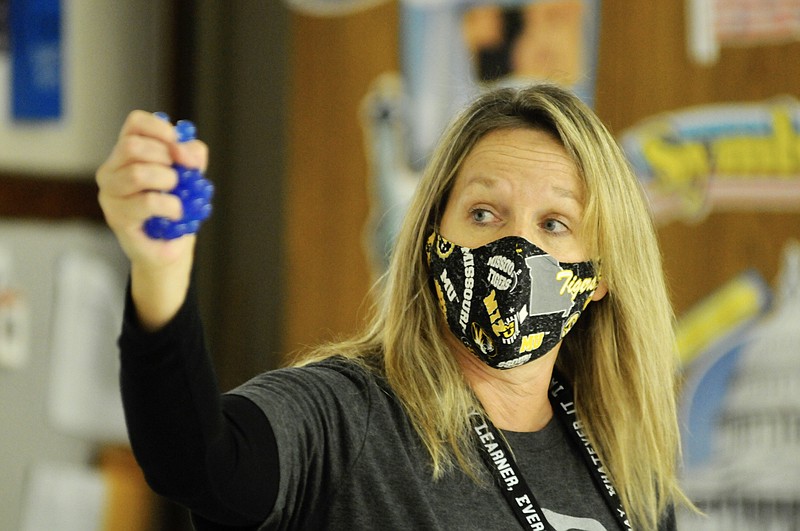The COVID-19 pandemic has created stress and anxiety for many, but children and teens may respond more strongly to the stress of a crisis, according to the Centers for Disease Control and Prevention.
It's important to realize it's natural to experience stress and anxiety right now, said Bridget Frank, special services director for the Jefferson City School District, who was a school psychologist for 11 years.
"Modeling how to handle that appropriately is the best thing that parents can do because kids learn from what they see," Frank said. "As adults, the more that we can model that and teach them that, the better that will help."
Children look to adults for guidance on how to react to stressful events. The CDC recommends sharing how you deal with your own stress with your child so they can learn from you. It also recommends being a role model by using healthy coping mechanisms such as taking breaks, getting plenty of sleep, exercising, eating well, and connecting with friends and family.
The CDC's list of ways to support your child also includes sharing facts about COVID-19 in a way your child can understand, reassuring your child that he or she is safe, letting him or her know it's OK to feel upset, limiting your family's exposure to news coverage, trying to keep up with routines and spending time with your child in meaningful activities.
The National Association of School Psychologists recommends staying calm, listening to your child and offering reassurance. One tip is to have them draw or write out their thoughts and feelings and respond with truth and reassurance.
The World Health Organization recommends responding to children's reactions in a supportive way, listening to their concerns, giving them extra love and attention, and making opportunities for them to play and relax.
Signs of mental health issues in children and adolescents include: avoiding school and peers; having more difficulty concentrating or interacting with others; having significant nightmares; unhealthy eating and sleeping habits, neglecting personal appearance; being more clingy or withdrawn than normal; excessive crying or irritability; poor school performance; and physical complaints such as stomachaches or headaches.
Kay Heckman, who lost her 19-year-old daughter, Maddie, to suicide, said Maddie experienced frequent pain in her head, throat and jaw, and Heckman believes this was pain in her heart that was manifesting in different ways.
Leading up to her death, Maddie also had a drop in academic performance and struggled to complete assignments, and she experienced unhealthy changes in sleeping and eating habits, and stopped putting energy into her physical appearance.
"She didn't have the energy to go through anything else for herself," Heckman said. "She was too tired. She was mentally drained from all the struggle and the pain inside her that she was dealing with."
Health Central advises parents to trust their gut. If you feel like something may be wrong, "it's better to talk with them or find someone for them to talk to before it might spiral into something more serious."
You should stay with them, tell them their life matters and they have a purpose, and seek help with them - because oftentimes they won't seek help on their own, Heckman said.
"If we feel there's a problem there, we need to dig a little deeper," she said. "Have that conversation. You may be saving a life."

